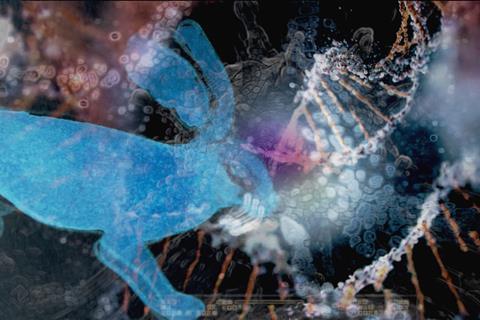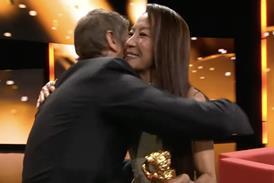Grand Prix winner at Visions du Reel is part of an epic, personal project from director Peter Mettler

Dir/scr: Peter Mettler. Switzerland/Canada. 2023. 166mins
While The Green Grass Grows sees filmmaker Peter Mettler blending family history and existential anxieties to construct a free-flowing meditation on life, death and what lies beyond. Chapters One and Six of a planned seven-part work, the project will eventually run in excess of ten hours. Intensely personal but always looking to address wider concerns, the film finds unexpected connections and poignant home truths in an intricate, audiovisual diary of sometimes random-seeming events. The Grand Prix at Visions du Reel should attract further festival interest for an epic work that seems ideally suited to documentary channels and specialist distributors.
Even with a daunting running time it leaves you ready for more
While The Green Grass Grows is a quest for deeper understanding propelled by Mettler’s own playful curiosity. He seems content to go where his instincts lead him in a project he began filming in 2019. The initial inspiration was the notion of discovering what people meant by the expression “the grass is always greener on the other side”. That remains one element of a film that has changed and developed along the way.
It is a film with a Malick-like appreciation of the natural world. The screen is filled with beautiful, tranquil images of lofty cloud-capped mountains, snow-covered forests and cascading waterfalls. Mettler has a particular fascination with water, capturing extremes ranging from a babbling brook and gently drifting ice flows to raging torrents and wintry landscapes sculpted in ice blocks. The constant flow of water serves as a metaphor for the flow of a human life that that will, in death, become part of the cosmos. The calm, unhurried pacing of the film lends it a contemplative air.
The bedrock of the two chapters shown at Visions du Reel and reviewed here is Mettler’s relationship with his elderly parents, Julie and Alfred (Freddy). Both are willing participants in the filmmaking process, although Julie has doubts as to whether anyone will finance it or want to watch it. Freddy merely wants to ensure that Julia is top-billed and that he has an ’also appearing’ credit.
Over the course of these three hours, Mettler is faced with the death of his mother and his frail father’s declining health. Filming is a way of keeping them engaged with the world. Old home movies of his parent’s wedding and vibrant, plump-faced middle-age are a sobering contrast to the thin, frail man that Freddy has become. Film bestows a kind of immortality on the dead, allowing Mettler to contemplate what happens to us after we physically die. Is there a faith in something more?
Philosophical questions are threaded throughout a film shot in Toronto, Zurich, La Gomera and Appenzellerland. Mettler allows himself to embrace distractions and diversions, including a trip to an abandoned iron mine. He makes occasional use of split-screen, animation and computer-generated images but largely allows the camera to observe his subjects and any interactions with them. There are quotations from Kurt Vonnegut’s ’Slaughterhouse Five’ and from Vietnamese monk Thich Nhat Hanh, and he makes use of an old interview with the Dalai Lama who discusses the continuity of consciousness and the meaning of reincarnation.
As filming progresses into 2020, Mettler and his father are faced with the curveball of the pandemic. Once again, he absorbs where events have taken him and goes with the flow. Restrictions on who and where he can film mean that Chapter 6 is slightly the weaker of the two parts featured in While The Green Grass Grows. It finds its focus once more in the relationship between Metler and a father facing his final days.
The pandemic does mean that the whole world is placed in a more reflective mood, questioning what they want from life and what gives it meaning. While The Green Grass Grows is very much in tune with that mood and even with a daunting running time it leaves you ready for more.
Production companies: maximage, Grimthorpe Films
International sales: maximage. info@maximage.ch
Producers: Cornelia Seitler, Peter Mettler, Brigitte Hofer
Cinematography: Peter Mettler
Editing: Jordan Kawai, Peter Mettler
Music: Michael Red, Souns
























